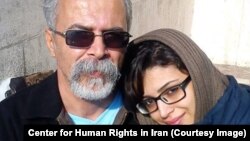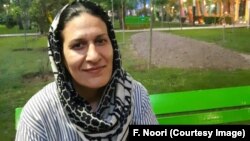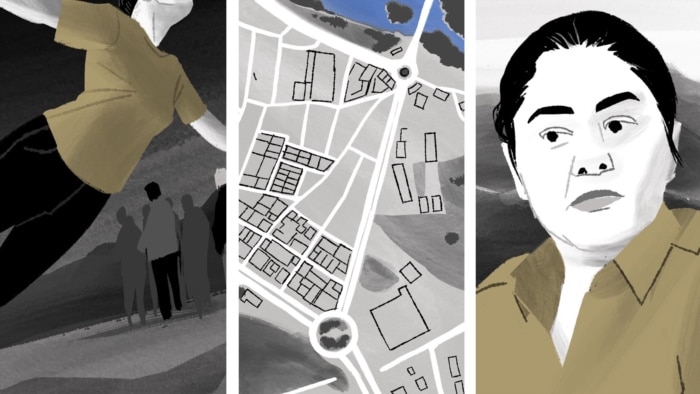A member of Iran’s Gonabadi dervish minority says she has learned that her jailed daughter and other dervish women detained near Tehran have been severely beaten by Iranian security agents.
In a Thursday phone interview with VOA Persian, Sedigheh Khalili said she heard of the beatings while visiting Qarchak prison on Tehran’s southern outskirts. Her daughter Sepideh Moradi is one of 10 dervish women who have been detained there since February, when they participated in a dervish anti-government protest that turned into a deadly confrontation with police in Tehran.
Speaking from outside Qarchak prison, Khalili said she and other family members of the detained women had just attempted to see their loved ones inside the prison. But, she said the prison authorities refused to let the group meet the detainees or take phone calls from them.
Tip from guards
“While we were waiting for our request to be granted,” Khalili said, “a few prison guards who were passing by said, ‘You didn’t hear this from us, but yesterday there was a mutiny here, and some of the dervish women were beaten up with batons, shocked with Tasers and had their hair pulled.’”
The main overseas news site covering Iran’s Gonabadi dervishes, Majzooban Noor, also reported severe beatings of the dervish women, saying it received information about Wednesday’s incident from sources at the prison.
Khalili said she heard from some of the prison guards that the incident began when the women objected to being denied phone cards and refused to return to their cells until they received access to phones. She said the guards told her that security agents responded to the protest by beating the women.
Khalili said a prison warden who met with her group of relatives told them that their loved ones were in good health and had been examined by a doctor. She said the warden dismissed talk of beatings as a lie.
“So I said (to the warden), ‘If everybody is in good health, why did you have to bring a doctor to check on them? If the slightest thing happens to my daughter’s health, you’re responsible.’ Then he told me to ‘go to hell’ and said it was my responsibility that my daughter was in this situation because I should have prevented her from taking part in the (February) protest. I told the warden that my daughter is not a thief, has not stolen anything and was protesting peacefully,” she said.
Desperate for news
Khalili also said she heard that Sepideh’s hair had been pulled so much that her daughter could not walk.
“I’m in such despair that I don’t know whether my daughter is alive,” Khalili said. “We said to the prison authorities, please grant us one minute on the phone so that we can hear our kids saying they are OK.”
There was no official word about the Qarchak prison incident from Iranian officials on state media.
February protest
Iranian authorities have said five members of the security forces were killed and more than 300 people were arrested during the February 20 clashes between police and the dervishes, also known as Sufis.
The Sufi protesters had been demanding the release of arrested members of their community and the removal of security checkpoints around the house of their 90-year-old leader, Noor Ali Tabandeh.
In Iran, the group is subject to scrutiny and harassment because the government views them as heretics.
This report was produced in collaboration with VOA’s Persian Service.


